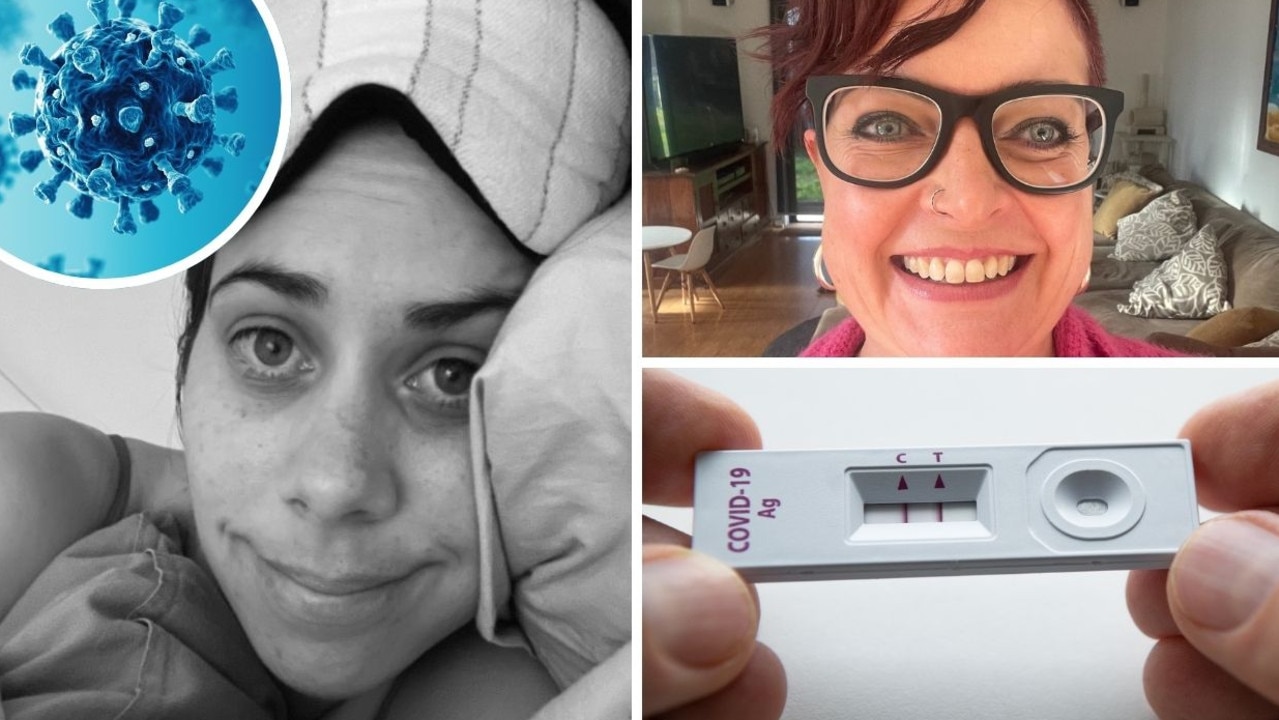COVID India: Nation sets new death toll record as world sends more emergency medical aid
Aussies in India could die if they are stranded there without access to proper healthcare, Australia’s chief health officer warned the government. WARNING: GRAPHIC
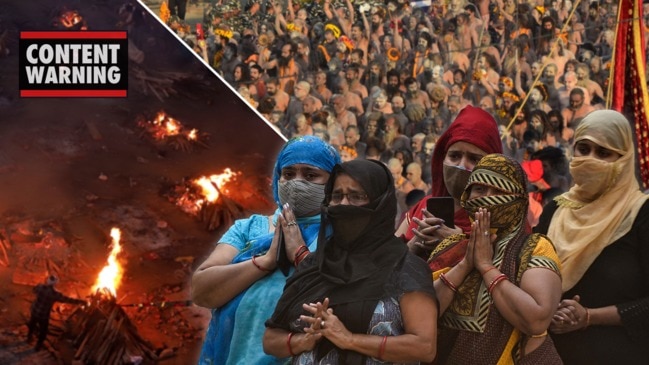
Coronavirus
Don't miss out on the headlines from Coronavirus. Followed categories will be added to My News.
Chief Medical Officer Paul Kelly warned Australians could die overseas when he recommended the government block citizens coming home if they had been in India in the previous fortnight.
Scott Morrison and Health Minister Greg Hunt continued to defend the move on Monday, arguing it was necessary to prevent a “third wave” in Australia.
But the Prime Minister opened the door to abandoning the closure before May 15, saying authorities would be “reviewing it before then”.
“This only needs to be there in place for as long as it needs to be there to keep Australians safe,” Mr Morrison said.
Channel 7 reported on Monday night the ban would be scrapped on May 15, with charter flights to resume to return trapped Australians.
While Prof Kelly said on Tuesday that he did not “advise anything in relation to fines”, his advice to Mr Hunt did detail the penalties that would apply if the government issued the order under the Biosecurity Act.
Prof Kelly’s advice also cautioned of the potential consequences including “the risk of serious illness without access to health care, the potential for Australians to be stranded in a transit country, and in a worst-case scenario, deaths”.
POLICY ‘NOT RACIST’
Prime Minister Scott Morrison has denied suggestions that a policy banning Australians returning from India is racist.
People who have been in India within the previous fortnight before their intended arrival in Australia will face a $66,600 fine, as well as five years imprisonment, for entering the country.
It is the first law in Australia’s history making it illegal for citizens to return.
Mr Morrison defended the move, arguing it is necessary to use emergency powers under the Biosecurity Act to protect Australia’s health services and quarantine program.
Mr Morrison attempted to allay fears, saying the powers would be used “appropriately and responsibly”.
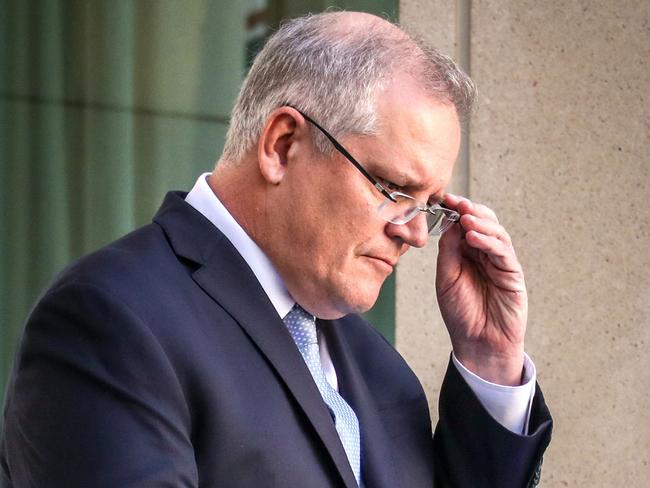
“I understand the measures have strong sanctions with them, but we’ve had the Biosecurity Act in place now for over a year, and no one’s gone to jail,” he told talkback radio station 2GB today.
And in a press conference this afternoon, Health Minister Greg Hunt echoed the sentiment and defended the timing of the announcement, which was signed off at 11.50pm on Friday night.
“This is, sadly, what’s required in a pandemic,” Mr Hunt said, speaking in Melbourne.
“We took medical advice, we worked through the day, we worked through the evening.
“And rather than delay it, we actually published it immediately, within half an hour, I believe, of the decision being made.”
Mr Hunt said the call was made due to India’s COVID crisis and “the incredible rate of positivity, and because of the pressures on the Australian health system”.
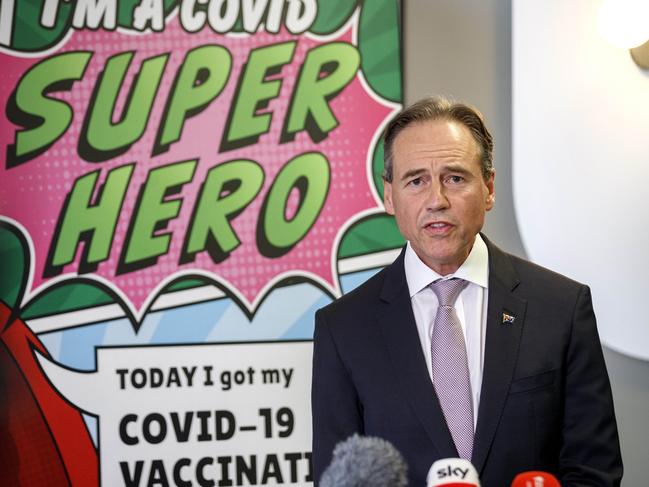
Meantime, Mr Morrison was forced to deny accusations of racism after equivalent measures were not implemented during outbreaks in the UK and the US.
“The same accusations were made against the government over a year ago when we closed the borders to mainland China. That was one of the most important decisions we made as a government,” he said.
“There’s no politics or ideology in a pandemic. I’m constantly taken aback by those who seek to inject it into it. It’s got nothing to do with politics, this is a virus.”
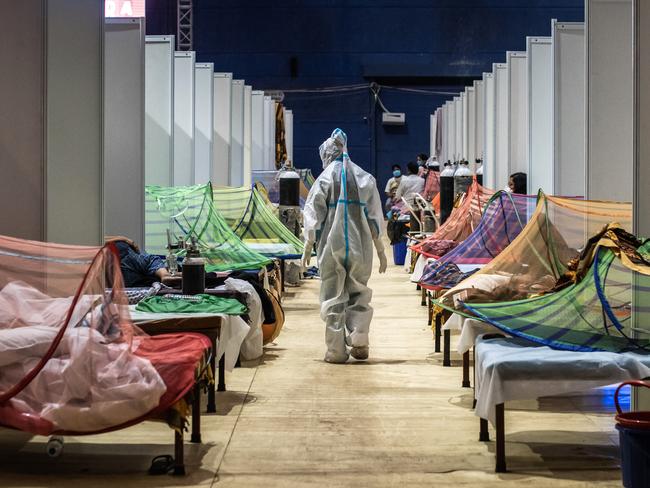
The federal government also moved to close a loophole allowing Australians to return from India via a third country.
“The alternative to doing what we’ve done was preventing those flights in their entirety, which would have stopped many hundreds, if not thousands, of other Australians coming home from other places,” Mr Morrison said.
‘THIS IS THE LAW’
Australia’s top medical authority has denied suggestions that he pushed the Morrison Government to impose harsh penalties for anyone who arrives from India during the temporary flight ban.
The Australian reports that chief medical officer, Professor Paul Kelly, said he was only asked for medical advice and was not approached on whether to impose penalties as allowed in the Biosecurity Act.
“To understand the Biosecurity Act, what was asked for was public health advice and once a decision is made by government as it was done on Friday night” Professor Kelly told ABC News.
“There is another section of the act which talks about what happens if you breach those things.
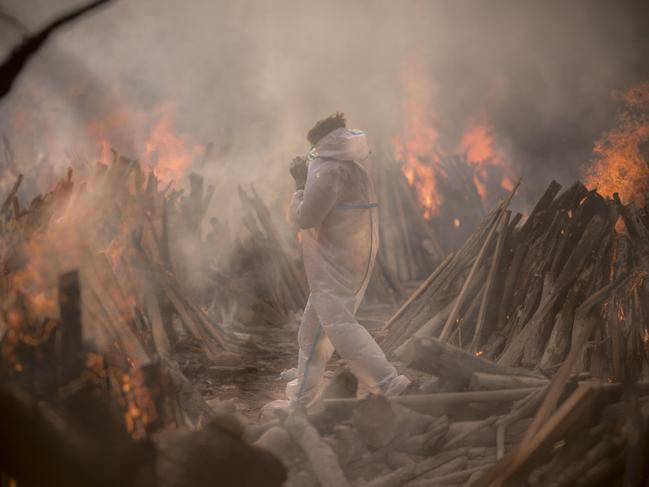
“So that is in the act itself, I didn’t advise anything in relation to fines or any of those other matters, that is the law.”
His comments came after Foreign Minister Marise Payne yesterday said the decision to fine or impose five year jail terms to Australian citizens attempting to get around the flight ban was based on medical advice.
INDIA’S GRIM MILESTONE
More emergency medical aid from foreign donors to alleviate a dire oxygen shortage arrived in India on Sunday, as COVID-19 deaths in the South Asian nation rose to a new record.
India is setting almost daily records for new infections and deaths as the virus crisis engulfs overstretched hospitals in cities and spreads into rural regions.
The country of 1.3 billion reported 3689 deaths on Sunday — the highest single-day rise yet in the pandemic, to take the overall toll to more than 215,000.
Just under 400,000 infections were added, bringing the total number of cases past 19.5 million.
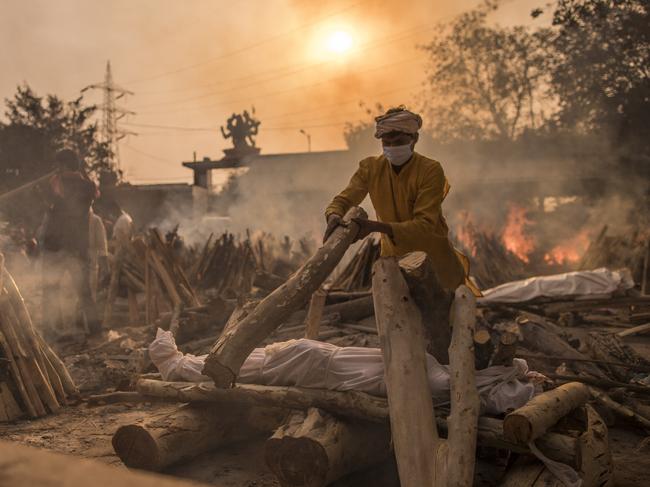
The latest figures came as medical equipment, including oxygen-generation plants, was flown into the capital New Delhi from France and Germany as part of a huge international effort.
The UK said Sunday it was sending an extra 1000 oxygen ventilators to COVID-struck India, as a group of doctors staged their own intervention by offering long-distance telemedicine from Britain.
British authorities have already sent 495 oxygen concentrators and 200 ventilators to India as the country grapples with a devastating surge in coronavirus cases, and are shipping three larger production units, dubbed oxygen factories.
The 1000 additional ventilators will come from British surplus capacity for Indian hospitals to help the most severe COVID cases, Downing Street said in a statement.
“We are here because we are bringing help that … will save lives,” Germany’s ambassador to India, Walter J. Lindner, said as 120 ventilators arrived late on Saturday.
“Out there the hospitals are full. People are sometimes dying in front of the hospitals. They have no more oxygen. Sometimes (they are dying) in their cars.”
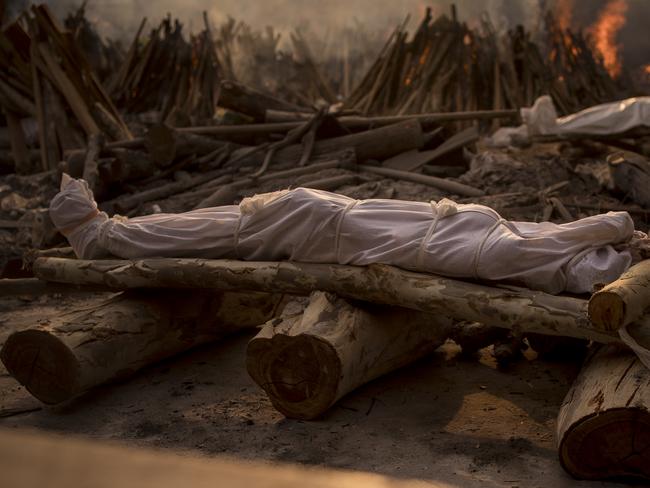
French ambassador Emmanuel Lenain said his country wanted to show solidarity with India.
“The epidemic is still going on in one country. The world won’t be safe until we are all safe. So it’s a matter of urgency,” he said early Sunday following the delivery of eight oxygen-generation plants and dozens of ventilators from France.
India’s eastern state of Odisha on Sunday became the latest region to order a lockdown to slow the spread of the pathogen.
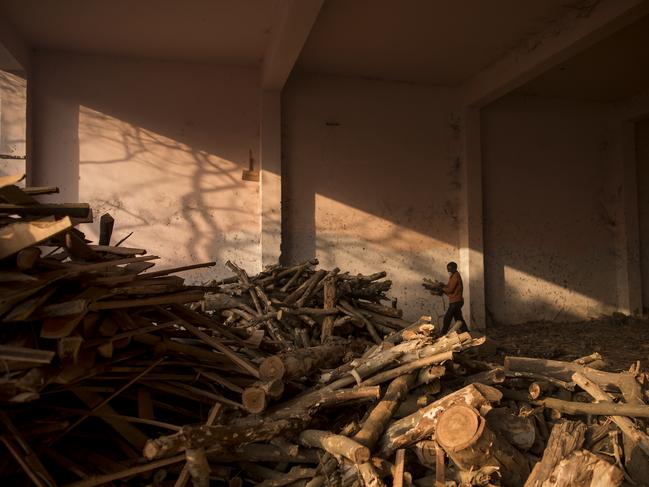
The nation’s worst-hit city, Delhi, reported just over 25,000 cases on Saturday as it extended its own lockdown by another week.
Hospitals in the capital continued to issue SOS calls for oxygen on social media, with the latest appeal posted by a children’s hospital on Twitter on Sunday.
The plea came a day after up to a dozen patients died at a Delhi hospital amid an oxygen shortage, local media reported.
There are also growing fears about the surge of the virus in small cities, towns and rural regions where health infrastructure is already patchy and limited.
VACCINATIONS OPENED TO ALL ADULTS
India opened up its inoculation drive to all adults, but supplies were running low.
“It is a necessity now. We are seeing so many people testing positive,” data scientist Megha Srivastava, 35, said outside a Delhi vaccination centre as she waited for her COVID jab.
The head of the world’s largest vaccine maker, Serum Institute chief Adar Poonawalla, told The Times newspaper on Saturday during a business trip to Britain that he was being hounded by political and business leaders for more supplies.
“’Threats’ is an understatement,” he told the paper.
“The level of expectation and aggression is really unprecedented. It’s overwhelming. Everyone feels they should get the vaccine.”
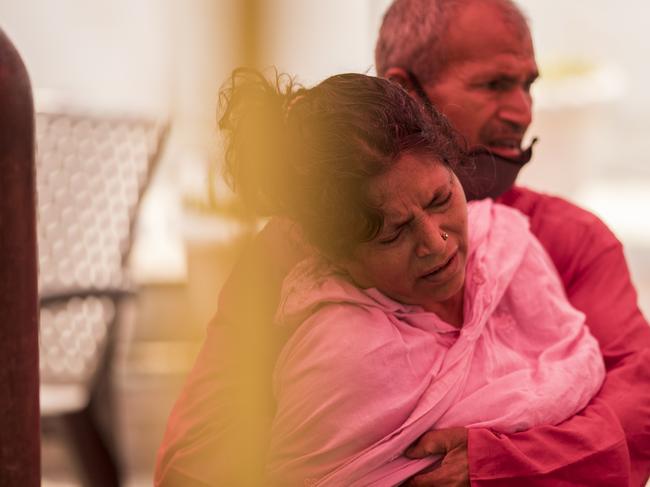
Experts have called on the government to allow more flexibility in India’s vaccine rollout, particularly in poorer rural areas where there is lower internet penetration.
“We should procure sufficient vaccines, then plan bottom-up through … the primary health centre level,” Bangalore-based public health expert Hemant Shewade told AFP.
“Take vaccines to the people the way we have implemented our polio and measles campaigns.”
Alarm bells are also ringing in other countries in densely populated South Asia.
“Infections have surged beyond the capacity of the health system,” Nepal’s health ministry said Friday as it warned that hospital beds were running out amid a spike in infections.
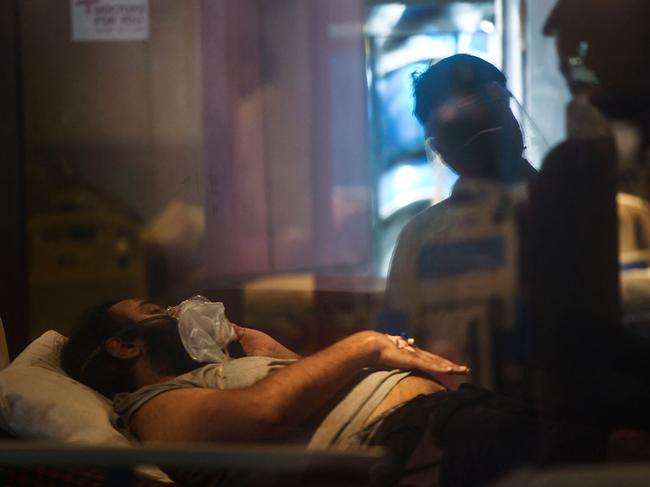
On Saturday, the Himalayan nation recorded 5706 new cases, just shy of a pandemic high of 5743 in October.
Nearly 40 per cent of people tested returned a positive result, data from the ministry showed.
The government has enforced lockdowns or partial lockdowns in almost half of Nepal’s 77 districts.
In Sri Lanka, daily infections hit a record 1699 on Saturday, with authorities imposing further curbs on movement and activities in parts of the island nation.
“We could face an India-type crisis very soon unless we arrest the current trend of infections,” chief epidemiologist Sudath Samaraweera said.
AUSTRALIA’S INDIA TRAVEL BAN ‘NOT RACIST’: PAYNE
Australia’s Foreign Minister Marise Payne has denied her government’s tough stance on enforcing a travel ban from India amounts to racism amid growing backlash.
From Monday, anyone who has been in India within the previous fortnight before their intended arrival in Australia will face a $66,600 fine, as well as five years imprisonment.
The Federal Government has defended the drastic move, saying it was necessary to protect Australia’s public health and the quarantine systems in the face of India’s unprecedented COVID-19 crisis.
Senator Payn said the penalties were not racist policies, and were part of a strict travel ban that was based on medical advice.
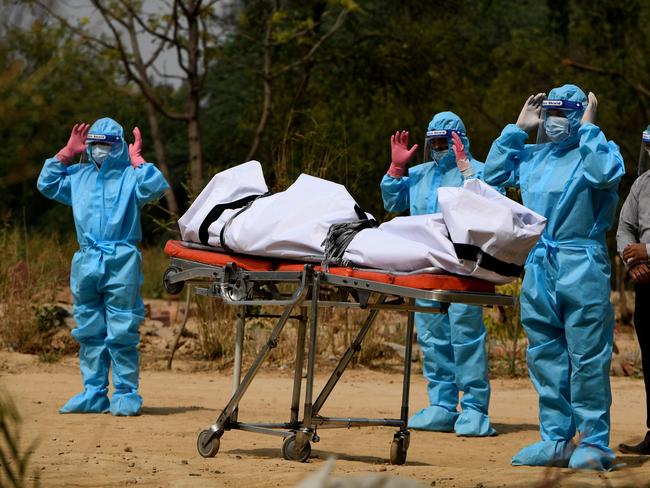
“The decision which has been made under the Biosecurity Act on the basis of the advice of the chief medical officer is a temporary pause on returns,” Senator Payne said.
“And it is entirely founded on the advice of the chief medical officer. That is what invokes the operation of the Biosecurity Act. What is most important is that it is temporary.”
The move has attracted criticism from the Australian Human Rights Commission (AHRC) as well as members of the Australian-Indian community.
In a statement, the AHRC said the travel ban on Australian citizens returning from India, accompanied by criminal sanctions under the Biosecurity Act, raises serious human rights concerns.
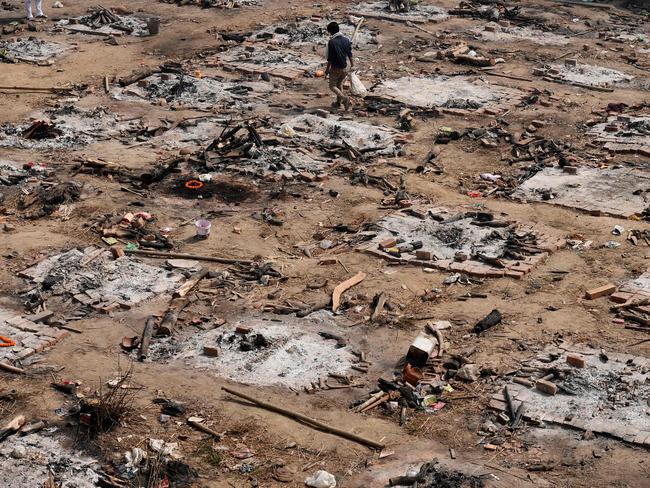
“The Commission supports the continuation of aid to the Indian Government as it copes with the current COVID-19 crisis, but the Commission holds deep concerns about these extraordinary new restrictions on Australians returning to Australia from India,” the statement said.
“The need for such restrictions must be publicly justified. The Government must show that these measures are not discriminatory and the only suitable way of dealing with the threat to public health. The Commission urges Parliament’s Senate Select Committee on COVID-19 to review these new restrictions immediately. The Commission is approaching the Australian Government directly with its concerns.”
British-Australian academic Dr Kylie Moore Gilbert, who spent more than two years locked up in an Iranian prison, joined the growing chorus of outrage over the Federal Government’s threat to jail or fine Australian citizens returning from India as part of its hard line travel ban.
“I know what it means to do time for absolutely no reason whatsoever,” she tweeted.
“I also know what it means to be rescued from a COVID-riddled overseas hellhole and be brought back to Australia (yes into quarantine).
“This outrageous policy is immoral, unjustifiable and completely un-Australian.”
Read related topics:India COVID



